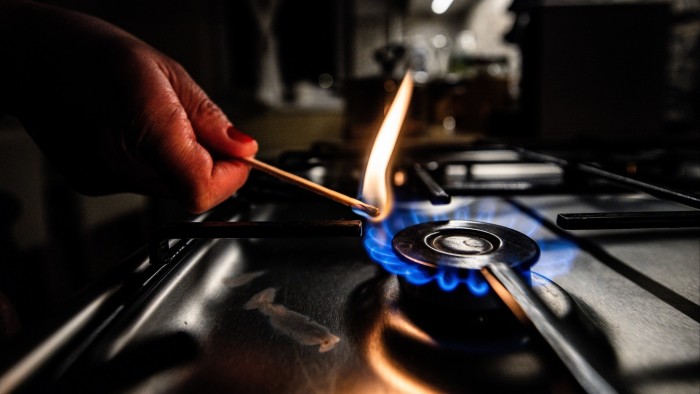Stay informed with free updates
Simply sign up to the EU energy myFT Digest — delivered directly to your inbox.
Brussels is exploring legal options that would allow European companies to break long-term Russian gas contracts without paying hefty penalties to Moscow.
The European Commission has been studying the contracts and the possibility of declaring force majeure, which would allow importers to exit their obligations without paying additional fees, according to three officials with knowledge of the plan.
“If the whole idea is not paying Russia, then [paying compensation] would undermine the whole purpose,” one EU official said.
The move highlights the EU’s struggle to wean itself off Russian energy and deprive the Kremlin of revenues for its war in Ukraine. Moscow’s gas now makes up just 11 per cent of the bloc’s supplies via pipeline, compared with almost two-fifths in 2022, but volumes of Russian liquefied natural gas LNG have increased rapidly in the past three years.
Commission lawyers are exploring legal options as part of a road map on how the bloc will rid itself of Russian fossil fuels by 2027. The plan comes at a critical time for the EU as it also tries to present an energy deal to the US to counter President Donald Trump’s tariff regime.
The Commission declined to comment.
The US is already the bloc’s biggest supplier of liquefied natural gas and is seen as an obvious replacement for any further reduction in Russian fuel.
The EU paid €21.9bn to Russia for oil and gas between February 2024 and February 2025, according to the Centre for Research on Energy and Clean Air.
Unlike Russian coal, gas has not been subject to an import ban, while the EU has prohibited 90 per cent of oil imports from Moscow. Imports of the country’s shipped gas increased about 60 per cent over the past three years, but total Russian gas exports to the bloc are still the lowest since 2022.
The road map — originally meant to be published in March — has been delayed in part because of concerns that any ensuing legislation would be blocked by Hungary and Slovakia, which now account for most of the remaining piped gas still flowing into the EU.
Hungary’s pro-Russia government has threatened that it would reject gas sanctions, which need unanimous approval from the EU’s 27 member states.
The road map has also been pushed back because of early discussions over the future of the Nord Stream pipeline connecting Germany and Russia, which have been revived amid US efforts to find a rapprochement to end the Ukraine war, and the inclusion of gas purchases in trade talks with the Trump administration.
“It’s a mess,” one EU diplomat said. “How does the US fit in all this? How do we diversify?’’
European Commission president Ursula von der Leyen, however, told the Financial Times that the plan should be published in “three to four weeks”.
Despite pressure from Brussels, EU nations are wary of forcing companies to cut LNG contracts with Russia amid concerns that it will push up prices when companies are struggling with geopolitical turmoil and high costs.
The Commission gave member states powers to prevent Russian and Belarusian operators hooking up LNG to port infrastructure or sending their gas through EU pipes, but ministers have complained that this does not give them strong enough legal means to force companies to break their contracts.
The complexity for the commission’s lawyers is that contracts are secret and tend to differ. Using the war in Ukraine to call force majeure may not be legally sufficient, one EU official said.
France, Spain and Belgium’s ports are the main import hubs for Russian LNG. Moscow’s Yamal LNG plant still holds contracts with some of the EU’s biggest energy companies including Shell and Naturgy.
Brussels-based think-tank Bruegel this month argued in favour of tariffs rather than a full ban on Russian gas imports, noting that the former would generate revenue for the EU and force Russian suppliers to lower prices to remain competitive. Unlike sanctions, tariffs only require a majority of EU member states to back them in order to be approved.
“An effective common tool on Russian gas imports is urgently needed — as otherwise Russia might again use (the prospect of) selective gas supplies to fuel profound discord among member states,” they wrote.

